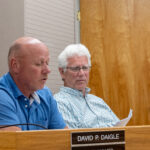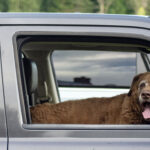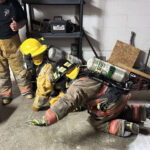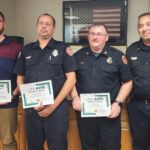September is National Preparedness Month:
Are you ready?
By U.S. Sen. Susan Collins
(R-Maine)
Here in Maine, a popular saying is “if you don’t like the weather, wait a minute.” However, as we saw with the recent flash flooding that southern Maine experienced in August, we are all well aware that extreme weather can be dangerous.
While most of Mother Nature’s powers can be anticipated, such as a hurricane or a snowstorm, we sometimes have little or no time to prepare for severe weather.
It was Hurricane Katrina in 2005, and the unimaginable terrorist attacks on September 11, 2001, that led to a law that I coauthored to strengthen our nation’s capacity to respond to natural disasters as well as terrorist attacks.
The government has established protocols that will help our country through natural disasters, disease pandemics, catastrophic accidents or vicious acts of terrorism. And your household should have them too. We need all Americans to learn how best to respond to an emergency, whatever form it may take.
That’s why September is National Preparedness Month.
The goal of National Preparedness Month is to remind Americans of the importance of being prepared, staying informed, having an emergency plan, and doing basic due diligence when it comes to family and personal safety.
National Preparedness Month allows us to evaluate our personal emergency response plans. The power of prudent planning cannot be underestimated. We all know that things can, and will, change in an instant if there is a natural disaster or a terrorist attack. And we know that we have to be prepared for such challenges whenever they occur.
The Federal Emergency Management Agency, or FEMA, has developed a plan to help you prepare. First, FEMA suggests that you be informed so you and your loved ones know what to do before, during, and after an emergency. Second, make a plan to prepare and stay informed. Last, you should build a kit to help keep your family safe should you lose electricity. It should include at least a gallon of water per person for at least three days, a three-day supply of non-perishable food, a battery-powered radio to stay informed, a flashlight and extra batteries, and a first aid kit. If you have an infant, make sure all the proper supplies are in place. If you have a pet, make sure those supplies are included as well. For more information, check out FEMA’s website at http://www.ready.gov/make-a-plan.
A little planning today will go a long way should disaster ever strike your community. Whether from natural disasters, disease pandemics, catastrophic accidents or vicious acts of terrorism—we need all Americans to learn how to best respond to an emergency, whatever form it may take.







